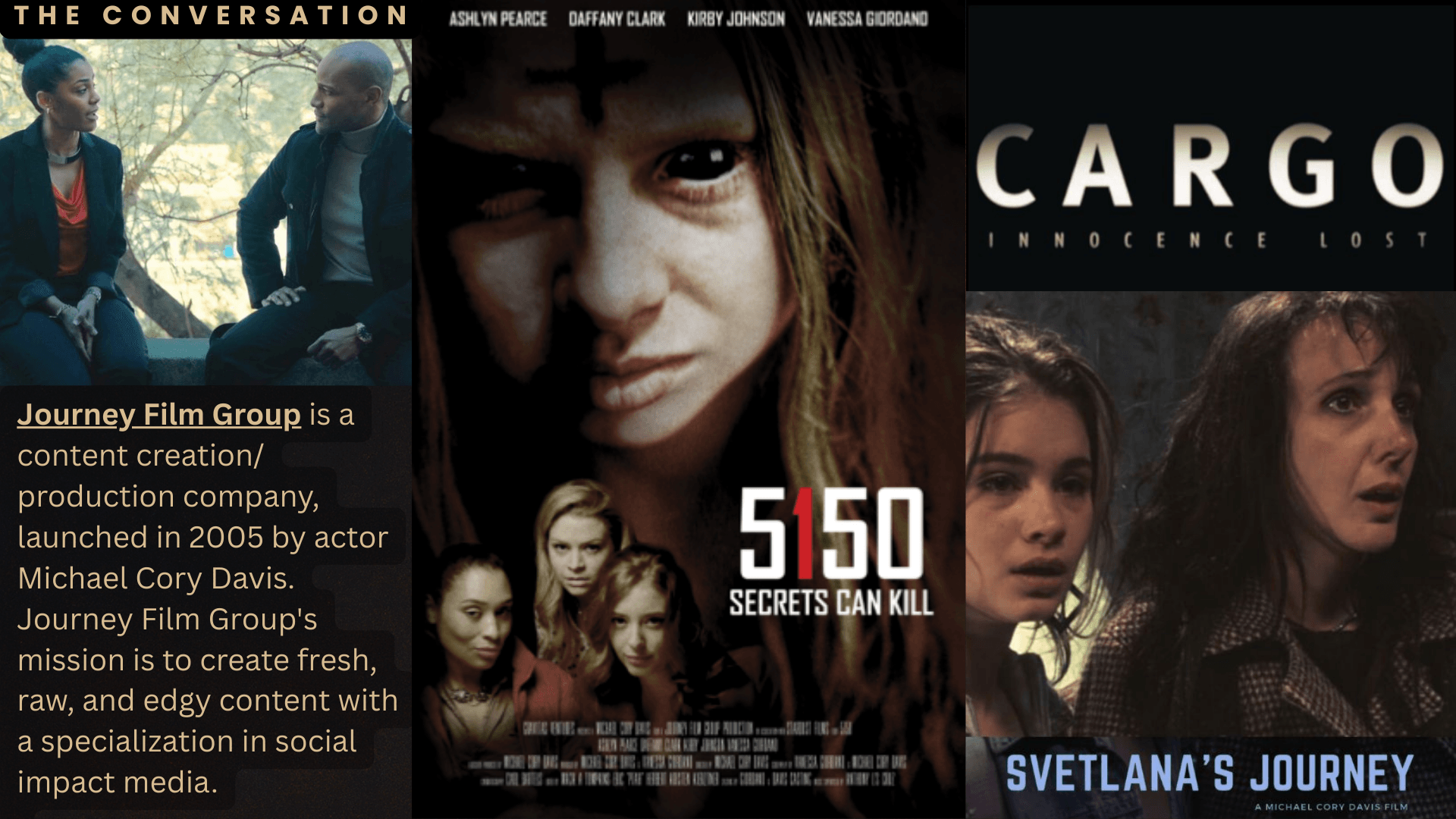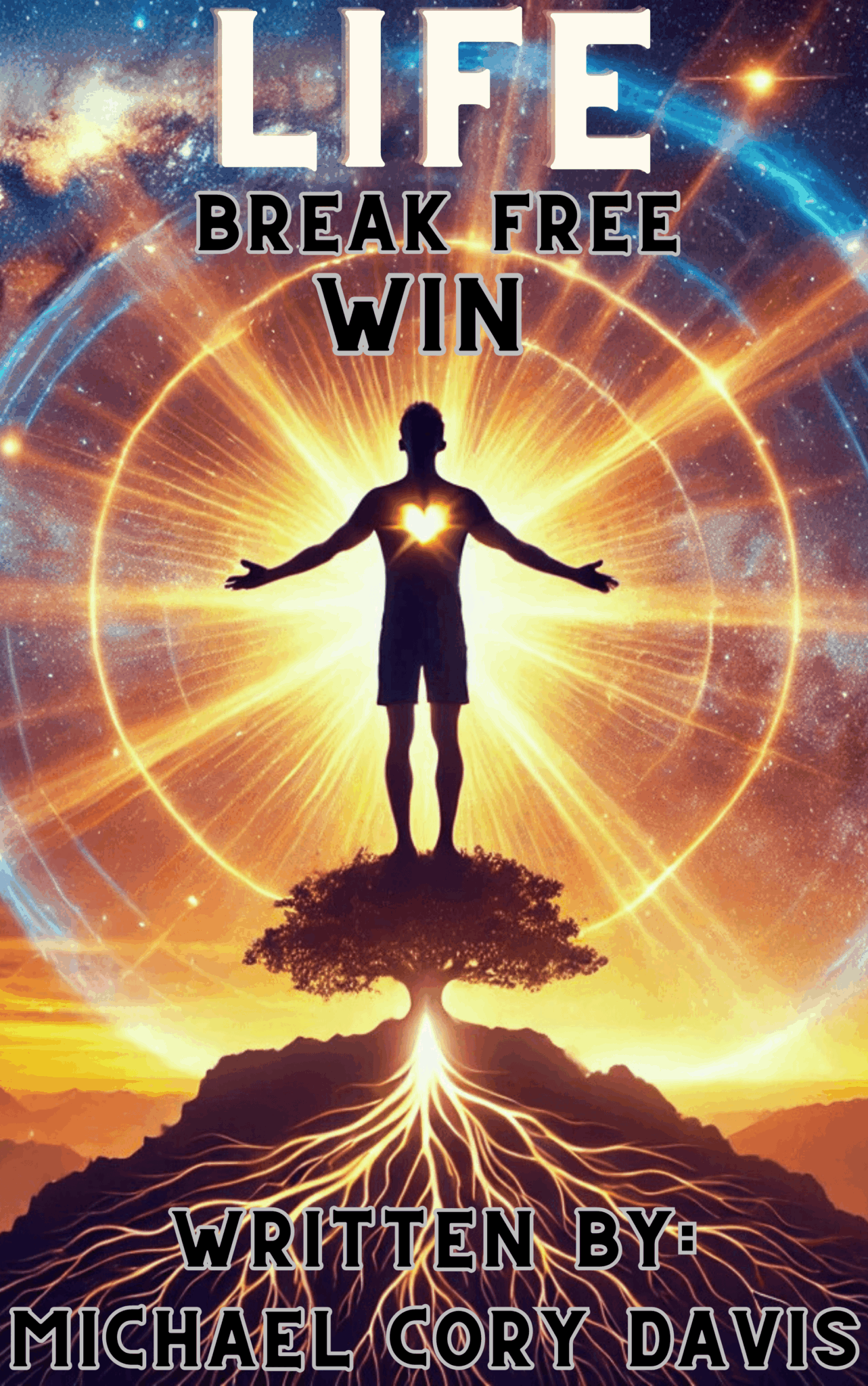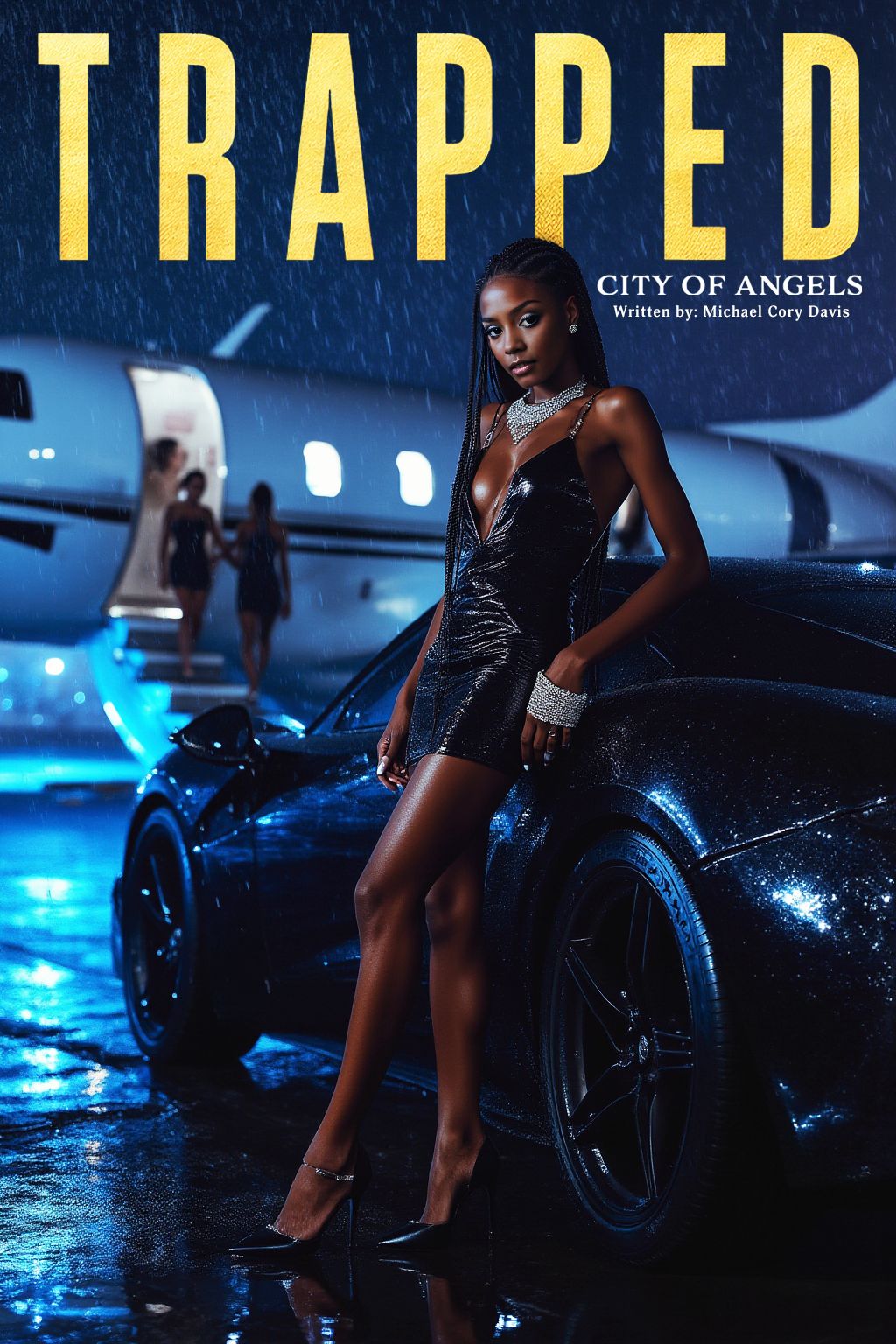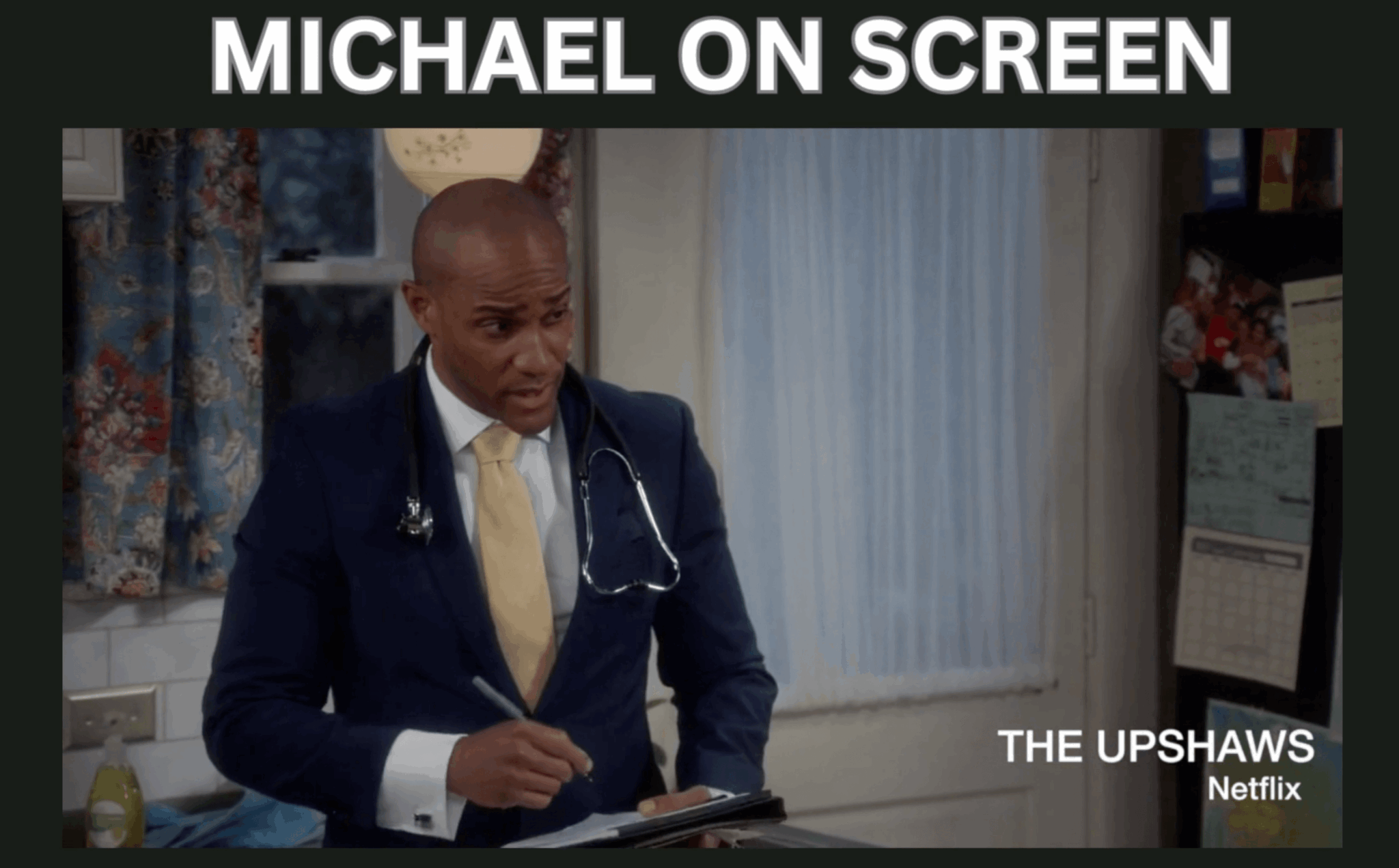We’re excited to introduce you to the always interesting and insightful Michael Cory Davis. We hope you’ll enjoy our conversation with Michael Cory below.
Michael Cory, appreciate you joining us today. We’d love to hear about a project that you’ve worked on that’s meant a lot to you.
The most meaningful project I’ve worked on is my current non-fiction book Life Break Free Win. It’s deeply personal because it represents a culmination of my life experiences — growing up as a Black male in 1980s and ’90s New York, my career as an actor, filmmaker, and my work as an activist and subject matter expert on sex trafficking. The book is about raising high-conscious, emotionally intelligent men in society, and for me, it brings all of those perspectives together. I believe that building a better world starts with developing men who are self-aware, compassionate, and responsible, and this project allows me to contribute directly to that vision.

Michael Cory, before we move on to more of these sorts of questions, can you take some time to bring our readers up to speed on you and what you do?
I would describe myself first and foremost as a storyteller and changemaker. I began my journey in the entertainment industry as an actor, but my path truly shifted when I created my first films addressing sex trafficking — Svetlana’s Journey and Cargo: Innocence Lost. Those projects opened my eyes to how powerful stories can be in raising awareness, shifting culture, and inspiring action. Since then, I’ve worked across multiple disciplines — as a filmmaker, activist, author, and creative director — always with the goal of telling meaningful stories that move people to both reflect and act.
In addition to my nonprofit advocacy, I create branded content for individuals, organizations, and groups that want to use storytelling to highlight social issues. Alongside that, I continue to provide my direct services as an actor, filmmaker, producer, and public speaker. My creative works span across film, books, and campaigns, always centered on social justice, empowerment, and self-awareness.
I’m especially proud of my upcoming projects: the Trapped: City of Angels book series, which serves as a testament to the countless victims’ stories I’ve learned over the years, and my non-fiction book Life Break Free Win, which is a culmination of my personal and professional experiences — designed to guide young men toward becoming high-conscious, emotionally intelligent leaders in their own lives and communities.
What sets me apart, I believe, is that my work blends lived experience, creative expression, and social impact. I don’t just create content for entertainment; I create with the intention of leaving people better than I found them. I’m proud that my projects — whether a film, book, or awareness campaign — have sparked conversations, influenced policy discussions, and most importantly, touched lives on a human level.
For potential clients, followers, and supporters, what I want them to know is simple: my work is about more than storytelling — it’s about transformation. I want audiences to walk away not only entertained but also challenged to think differently about themselves and the world around them. That’s the heart of my brand and the legacy I’m building.

How can we best help foster a strong, supportive environment for artists and creatives?
For me, the best way society can support artists and creatives is by recognizing the deeper value of what we do. My own career has shown me that storytelling isn’t just entertainment — it’s a vehicle for empathy, education, and social change. When I made films like Svetlana’s Journey and Cargo: Innocence Lost, I saw firsthand how a story could shine a light on an issue like sex trafficking and move audiences to care and act in ways statistics never could.
But I’ve also seen how difficult it is for independent creators — especially those of us from marginalized backgrounds — to get the resources and platforms we need to tell our stories. Too often, the industry funds what’s “safe” or fits a formula, while the stories that could truly shift culture go unheard. That’s why I believe society has to invest more in diverse voices, create equitable funding opportunities, and ensure that artists are respected and compensated fairly for their work.
For me personally, whether it’s my films, my upcoming Trapped: City of Angels book series, or my non-fiction book Life Break Free Win, everything I create is designed to leave people better than I found them. I think a thriving creative ecosystem is one where artists don’t have to choose between survival and authenticity, where we have the space to take risks, innovate, and tell stories that matter.
At the end of the day, when society supports artists, it’s not just supporting us — it’s supporting its own growth. Because the stories we tell shape the kind of world we all get to live in.

Do you think there is something that non-creatives might struggle to understand about your journey as a creative? Maybe you can shed some light?
I think one of the biggest things non-creatives may struggle to understand is the level of sacrifice and persistence it takes to live this kind of life. From the outside, creativity can look glamorous — film premieres, book launches, speaking on a stage — but the reality is that so much of the journey is spent in uncertainty. There are long stretches of rejection, financial instability, and moments where you question if the world even values what you’re trying to create.
For me, there were many times I could have taken a “safer” path, but I chose to keep creating because I knew my work had purpose. When I made Svetlana’s Journey or Cargo: Innocence Lost, there was no guarantee anyone would watch, yet those projects ended up touching lives and sparking important conversations about trafficking. The same is true for my upcoming book series Trapped: City of Angels or Life Break Free Win — the process required years of dedication before anyone else could see the vision.
What I’d want non-creatives to understand is that behind every finished project there are countless unseen hours, doubts, and sacrifices. But those struggles are also what make the victories so meaningful. If you’re watching a film, reading a book, or experiencing any work of art that moves you — know that the creator probably walked through a lot of fire to bring it to life. And maybe the insight there is this: you don’t have to be a “creative” to live creatively. Living with courage, resilience, and imagination is something everyone can practice in their own lives.
Contact Info:
- Website: https://www.michaelcorydavis.com
- Instagram: @mcorydavis
- Facebook: michael cory davis
- Linkedin: michaelcorydavis
- Youtube: https://youtube.com/ausjorg
- Other: https://www.linktree.com/mcorydavis



